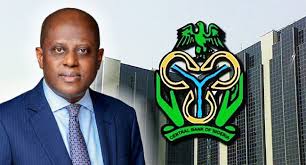The Central Bank of Nigeria (CBN) has decided to maintain the Monetary Policy Rate (MPR), also known as the interest rate, at 27.50 per cent. This announcement was made by the Governor of the CBN, Mr Olayemi Cardoso, after the 300th meeting of the Monetary Policy Committee (MPC), which was held in Abuja on Tuesday. This is the second time in 2025 that the interest rate has been kept at the same level, after a series of increases last year.
Governor Cardoso said the committee was united in its decision to pause the rate hikes. According to him, “The committee was unanimous in its decision to hold policy and thus decided as follows: Retain the MPR at 27.50 per cent.” He explained that keeping the rate steady would give the committee time to better understand changes happening in the economy.
The CBN also kept other major policy tools unchanged. The asymmetric corridor around the MPR remains at +500/-100 basis points. The Cash Reserve Ratio (CRR) for Deposit Money Banks stayed at 50.00 per cent, while that of Merchant Banks remained at 16.00 per cent. The Liquidity Ratio also stayed at 30.00 per cent.
This decision came amid signs of improvement in Nigeria’s economy. The National Bureau of Statistics reported that headline inflation dropped to 23.71 per cent in April 2025, from 24.23 per cent in March. Month-on-month inflation fell from 3.9 per cent to 1.86 per cent. Food inflation also decreased slightly from 21.79 per cent to 21.26 per cent, while core inflation dropped to 23.39 per cent from 24.43 per cent.
Despite these gains, the CBN expressed concern about ongoing inflation pressures. Cardoso pointed out that high electricity costs, strong demand for foreign exchange, and long-standing problems in the economy were still pushing up prices. He also commended government efforts to improve food supply and address insecurity in farming areas.
The MPC praised the Federal Government’s reforms aimed at encouraging local production and reducing the country’s dependence on foreign exchange. The committee urged the CBN to continue with its forex reforms to build investor confidence.
Cardoso noted that Nigeria’s external reserves rose by 2.85 per cent to $38.90 billion as of May 16, 2025, from $37.82 billion at the end of March. This means Nigeria now has enough reserves to cover 7.6 months of imports.
The governor also said the gap between the official and black market exchange rates is narrowing. He encouraged fiscal authorities to increase foreign exchange earnings, especially from oil, gas, and non-oil exports.
He noted that Nigeria’s Gross Domestic Product (GDP) grew by 3.84 per cent in the fourth quarter of 2024, up from 3.46 per cent in the third quarter. The growth was driven by both oil and non-oil sectors, especially the services sector.
However, the committee is worried about the recent fall in crude oil prices. According to Cardoso, this decline is caused by more production from non-OPEC countries and uncertainties surrounding U.S. trade policy. These issues could affect government revenues and budget plans.
The MPC also praised the relative stability in Nigeria’s banking sector and urged the CBN to maintain strict supervision, especially as banks go through recapitalisation. Cardoso said, “Members reaffirmed their commitment to prioritise policies targeted at anchoring inflation expectations and easing exchange rate pressure.” The next MPC meeting is scheduled for July 21 and 22, 2025.
Meanwhile, business leaders are reacting to the CBN’s decision. The Chairman of the Organised Private Sector of Nigeria (OPSN), Mr Dele Oye, continued to push for a reduction in the MPR. Oye, who also heads the Nigerian Association of Chambers of Commerce, Industry, Mines and Agriculture (NACCIMA), said the high interest rate is harmful to business growth. He explained that borrowing costs are too high, making it hard for businesses to grow or even survive.
According to Oye, “The economy cannot run on the 27.5 per cent interest rate. Nobody can borrow money at the current rate and make a profit from business.” He warned that higher interest rates lead to reduced investments and lower consumer spending, especially in the retail and services sector.
Dr Femi Egbesola, President of the Association of Small Business Owners of Nigeria, agreed that the decision to hold the rate showed caution, but he still wants the rate lowered in the future. He said, “The current interest rate remains too high for small businesses to access credit and grow. We need a more accommodative monetary policy that lowers the cost of borrowing.”
Segun Kuti-George, National Vice President of the Nigerian Association of Small Scale Industrialists, also shared his thoughts. He said the MPC might have held the rate steady to see if prices will drop further. However, he believes the fall in inflation is too small to justify cutting rates now, though the decision to wait and see is understandable.
